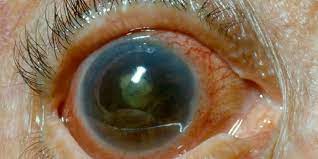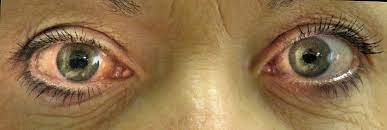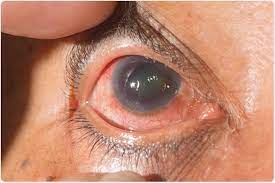Glaucoma
Welcome to Bright Vision Care Hospital, your trusted partner in eye health. In this informative guide, we will shed light on glaucoma, a serious eye condition that can lead to vision loss if not properly managed. Our mission is to provide you with essential information about glaucoma, including its symptoms, effective do's and don'ts for management, recommended exercises for eye health, and expert care to help you safeguard your precious vision.
Glaucoma is often called the "silent thief of sight" because it can develop without noticeable symptoms, gradually robbing individuals of their vision. Early detection and proper management are crucial for preserving eye health.
Symptoms
Elevated intraocular pressure is a key indicator of glaucoma. However, it's important to note that not all cases of glaucoma have high IOP, and some individuals with normal pressure can still develop the condition.
Gradual Loss of Peripheral VisionOne of the earliest signs of glaucoma is the gradual loss of peripheral vision. This often goes unnoticed until it becomes significant and affects daily activities.
Halos Around LightsSome individuals with glaucoma may experience halos or rings around lights, especially at night or in low-light conditions.
Blurred VisionVision may become intermittently or consistently blurred, particularly in the later stages of glaucoma.
Optic Nerve DamageAn eye specialist may detect changes in the optic nerve, including cupping or thinning, during a comprehensive eye examination. Optic nerve damage is a hallmark sign of glaucoma.


Do's & Dont's
Do's
Regular Eye ExaminationsSchedule regular eye exams, especially if you have risk factors for glaucoma, such as a family history or diabetes.
Follow Treatment PlansIf diagnosed with glaucoma, adhere to your prescribed treatment plan, which may include eye drops, oral medications, or surgery.
Eye ProtectionProtect your eyes from injury by wearing appropriate safety glasses or goggles during activities that pose a risk of eye injury.
Maintain a Healthy LifestyleA balanced diet and regular exercise can help manage conditions like diabetes and high blood pressure, which are risk factors for glaucoma.
Know Your Family HistoryBe aware of your family's eye health history, as genetics can play a role in glaucoma risk.
Dont's
Don't Skip Eye ExamsEven if you don't have noticeable symptoms, regular eye exams are crucial for early glaucoma detection.
Avoid SmokingSmoking can increase the risk of glaucoma, so it's advisable to quit or avoid tobacco products..
Don't Self-MedicateAvoid self-prescribing over-the-counter eye drops or medications without consulting an eye specialist, as they may worsen the condition.
Limit CaffeineExcessive caffeine intake can temporarily increase eye pressure, so consider moderating your caffeine consumption.
Don't Skip MedicationsIf prescribed eye drops or medications, use them as directed by your eye specialist. Skipping doses can lead to uncontrolled glaucoma.
Exercises
Regular exercise can promote eye health. Here are five eye exercises to consider:
Rub your hands together to generate heat, then gently cup your palms over your closed eyes without putting pressure on them. Relax for a few minutes.
Near-Far FocusFocus on an object up close for a few seconds, then shift your gaze to a distant object. Repeat this exercise several times.
BlinkingBlink rapidly for about 30 seconds. This helps distribute natural tears across the surface of the eye.
Eye RollingSlowly roll your eyes in a circular motion, first clockwise and then counterclockwise. Repeat several times.
20-20-20 RuleWhen working on digital screens, take a break every 20 minutes and focus on an object 20 feet away for at least 20 seconds to reduce eye strain.

Summary
Glaucoma is a potentially sight-threatening condition that requires vigilance and proactive eye care. Early detection through regular eye exams, adherence to prescribed treatment plans, and a healthy lifestyle can help manage glaucoma effectively. By following the recommended do's and don'ts and incorporating eye exercises, you can take important steps toward preserving your vision and maintaining eye health.